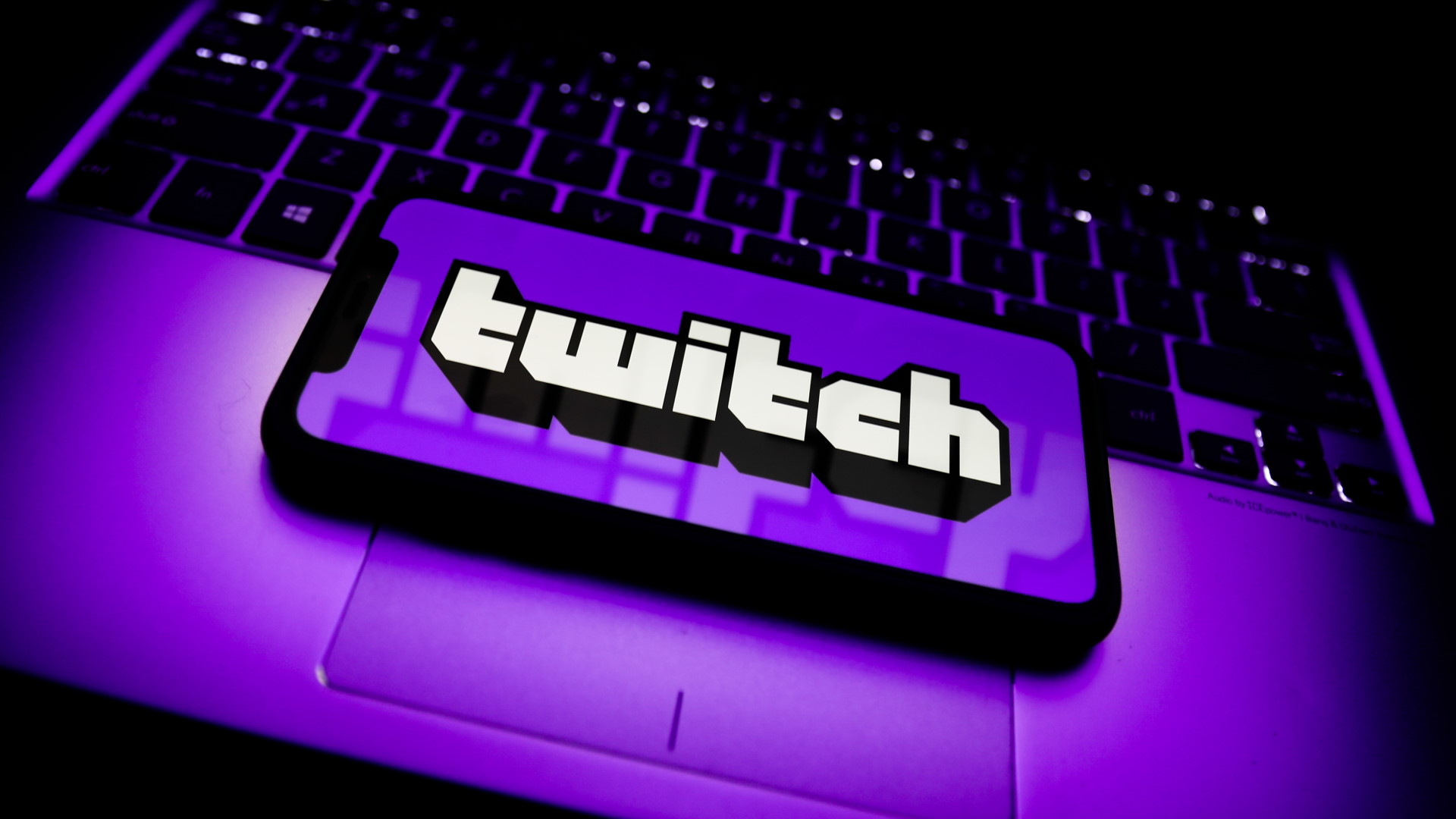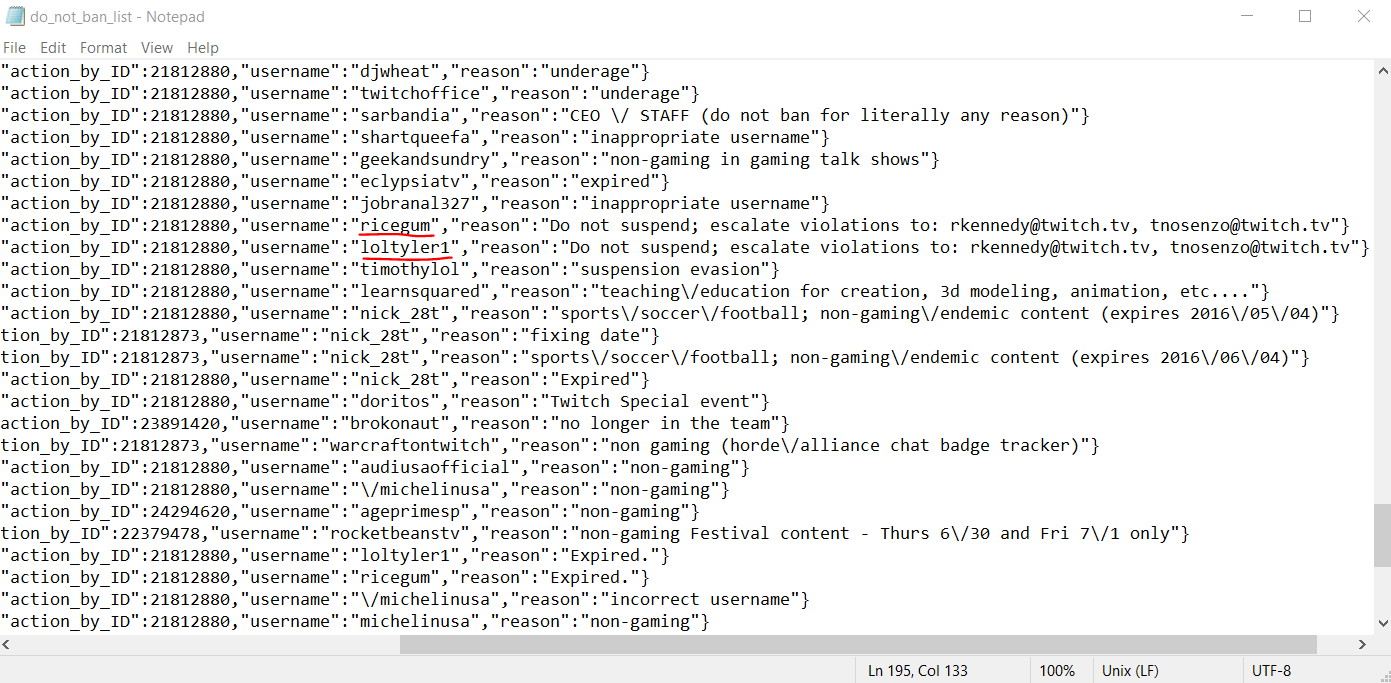Twitch had a 'do not ban' list to keep big-time streamers from being suspended for 'something dumb'
A list of protected streamers was discovered in the massive Twitch leak that occurred earlier this month.

One of the more interesting things to slip out of the recent Twitch mega-leak is the existence of a so-called "no ban list," essentially a list of notable streamers whose accounts should not be suspended or banned for violating the rules. But according to a Washington Post report (and a closer examination of the list), it's not a blanket exemption from the rules for the most popular (and profitable) personalities on the platform, but rather a kind of pre-moderation system aimed at keeping high-profile streamers from being given the boot for minor violations or misunderstandings.
"It was a way to quickly put a banner up to the admins on duty so they wouldn’t just blindly ban another admin or a prominent staff [member] for something dumb," a former Twitch admin told the site.
The list is way out of date. It's about five years old, according to multiple sources, and was meant to be used alongside an internal tool called "Better Desk," which is also no longer in use at Twitch. The list's age reflects how much Twitch has changed in five years. It protected nick_28t, audiusaofficial, and ageprimesp from being banned for streaming "non-gaming" content. Twitch didn't allow non-gaming streams until late 2015, when it launched Twitch Creative with a gloriously wholesome Bob Ross marathon. Twitch IRL didn't follow until a year later.
"The 'Do not ban' list was more like a 'Do not ban this channel for x' [list]," another former employee told The Washington Post. "[It was] basically a way to add a red notification on reports against [a] channel to make the admins working on reports aware that there are some agreements in place or that the channel is allowed to do certain things. Often it was used to allow what we now call IRL streams."

Some streamers in the list do appear to have a certain level of protection from broadly bad behavior. Complaints about notoriously toxic streamers RiceGum and loltyler1, for instance, were to be elevated to specific moderators rather than immediately acted on. Other entries in the list are clearly aimed at avoiding erroneous action based on more specific circumstances.
The Geek and Sundry channel was not to be suspended for "non-gaming in gaming talk shows" (again, this list existed before Twitch became the relatively wide-open streaming platform it is today), and Djwheat—Twitch moderator Marcus "djWHEAT" Graham—has an "underage" marker because he'd often bring his child onto streams and be reported for streaming with someone underage. The all-powerful "do not ban for literally any reason" belongs to Emmett "Sarbandia" Shear, the co-founder and CEO of Twitch. My favorite of the bunch, though, has to be the "inappropriate username" flag on jobranal327's account—I can only guess that it's due to a certain four-letter string in the midst of their Twitch handle
A Twitch spokesperson confirmed that the list is old and no longer in use—in fact, the whole moderation system it was built around doesn't exist anymore. Reviews of complaints about Twitch Partners used to be elevated to a separate Partner Conduct team, but in 2019 the system was changed so that conduct complaints about all streamers are handled by Twitch's Trust and Safety Operations. The goal of the change was to ensure more consistent and standardized moderation for all streamers on the platform.
Keep up to date with the most important stories and the best deals, as picked by the PC Gamer team.
Some Twitch moderation issues remain mysterious, such as the 2020 ban of one of its most popular streamers, Dr Disrespect, which Twitch still hasn't publicly stated the reason for. That and other high-profile bans do seem to indicate that, at least in some cases, the company is willing to drop popular figures. Others seem to escape long-term consequences despite repeated offenses, though: Kaitlyn "Amouranth" Siragusa, one of the top-earning streamers on Twitch, recently returned to the platform after her fifth suspension in two years.

Andy has been gaming on PCs from the very beginning, starting as a youngster with text adventures and primitive action games on a cassette-based TRS80. From there he graduated to the glory days of Sierra Online adventures and Microprose sims, ran a local BBS, learned how to build PCs, and developed a longstanding love of RPGs, immersive sims, and shooters. He began writing videogame news in 2007 for The Escapist and somehow managed to avoid getting fired until 2014, when he joined the storied ranks of PC Gamer. He covers all aspects of the industry, from new game announcements and patch notes to legal disputes, Twitch beefs, esports, and Henry Cavill. Lots of Henry Cavill.

